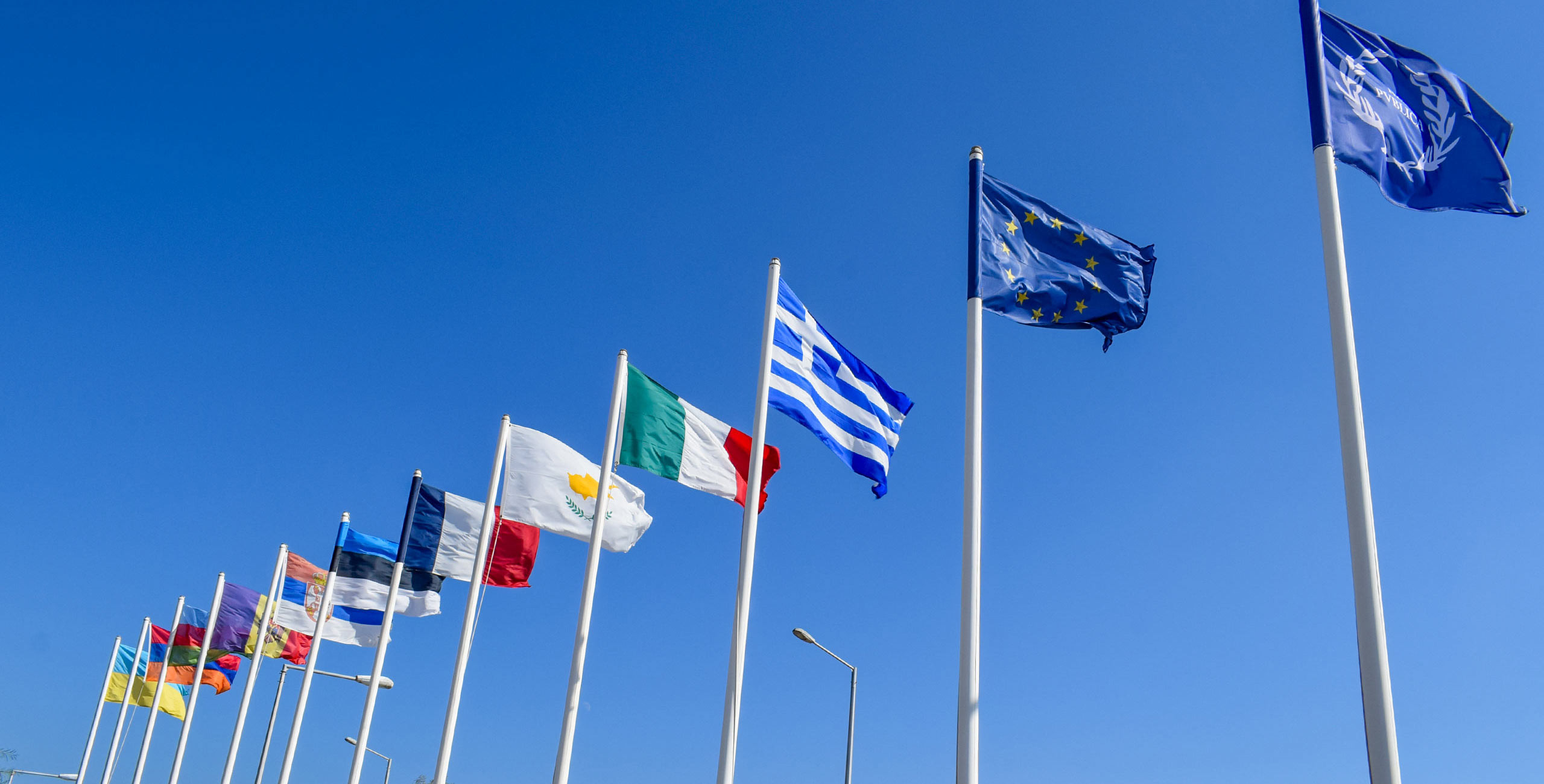About EPLO
Strengthening Governance Through Law, Education, and Collaboration
The European Public Law Organization (EPLO) is an international organization dedicated to promoting global capacity building in legal frameworks and democratic principles, empowering institutions worldwide to uphold justice, equality, and the rule of law. Headquartered in Athens, Greece, and active in over 75 countries, EPLO works to provide transformative learning, strategic partnerships, and support to public institutions worldwide. With a network of institutes and regional offices, EPLO promotes legal excellence and inclusive governance through a collaborative, future-focused approach. From shaping legislation, advising on institutional reform, and driving the forefront of public law curricula, EPLO continues to serve as a trusted partner in building the legal infrastructure of tomorrow.
Global Cooperation for Greater Impact
To achieve our mission, we actively promote cooperation with various institutions and organizations, particularly within the United Nations system. The EPLO holds Observer Status at the UN General Assembly, the World Intellectual Property Organization, the International Labor Organization, the International Organization for Migration, and the Espoo Convention and SEA Protocol - UNECE, as well as Associate Observer status with the Community of Portuguese-speaking Countries (CPLP). These affiliations enable EPLO to contribute meaningfully to international legal discourse and to collaborate with multilateral institutions on shared governance challenges.
Expanding Our Reach, Strengthening Our Impact
Through its network of institutes, regional offices, and strategic partnerships, EPLO is continuously evolving and growing—deepening partnerships, broadening educational offerings, and tackling emerging public law and governance challenges. Our commitment to innovation ensures a future where justice and democracy thrive.
In Detail: 4 Pillars of Work
The EPLO’s work is structured around four core pillars: education and training; project-based initiatives focused on institutional development and technical cooperation; research; and publications.
Through its education and training programs, EPLO offers academic degrees, executive seminars, and tailored workshops that equip students, legal professionals, public servants, and future leaders with the tools to navigate complex governance challenges. Our project-based work includes technical assistance, institutional reform, and capacity-building initiatives—often delivered in collaboration with national governments, international organizations, and civil society actors. In the realm of research and publications, EPLO produces scholarly journals, policy briefs, and thematic studies that contribute to the global discourse on public law and democratic governance. These pillars are supported by a dynamic network of experts, practitioners, and partner institutions, ensuring that EPLO’s work remains both context-sensitive and globally relevant.
How we work
The EPLO’s governance structure is anchored in a robust institutional framework that ensures transparency, accountability, and strategic direction.
Within EPLO's organizational structure, specialized Institutes and Academies have been established to advance the Organization’s mission in distinct thematic or regional areas. These entities serve as centers of excellence, bringing together leading experts, scholars, and practitioners to deepen knowledge, shape policy dialogue, and support capacity-building. They contribute to the EPLO’s research agenda by producing high-quality studies, organizing academic and professional events, and collaborating with the Department of Technical Cooperation on initiatives aligned with their area of specialization.
The Institutes typically focus on thematic areas such as public law, governance, sustainable development, migration, and circular economy, conducting interdisciplinary research and offering thought leadership in their fields. Academies additionally serve an educational function, delivering training programs, executive courses, and summer schools tailored to professionals, students, and public officials.
These entities enhance EPLO’s impact by extending its reach, diversifying its expertise, and fostering innovation across borders and disciplines.


